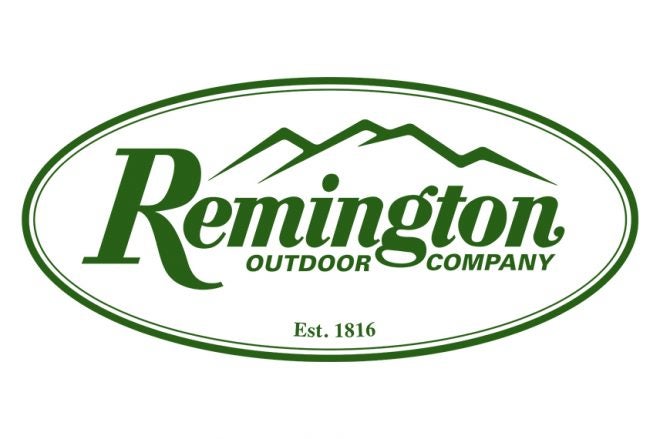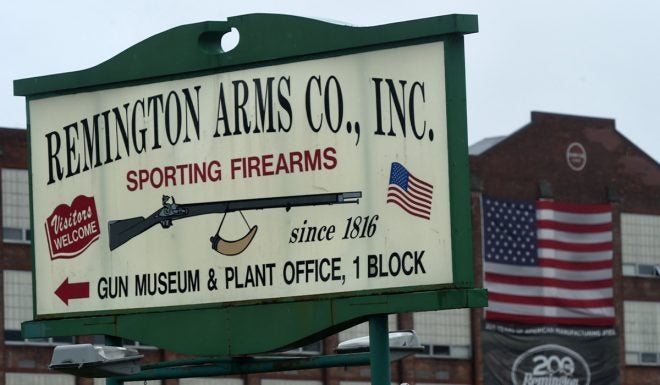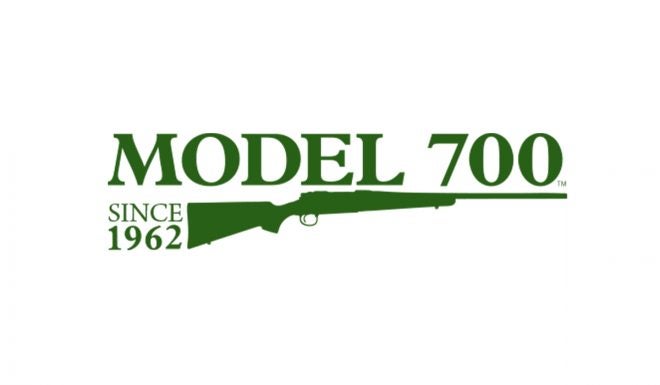What Happened to Remington?
Derrek Sigler 10.01.20

The big news hitting the outdoor industry lately is that Remington has been broken apart and the individual properties are being sold off to different entities. Now, that’s not to say that you’ll never see a Remington again. No, that’s not the case here at all. But Remington as we’ve come to know them is done. How did it come to this point? Seriously, what happened to Remington? Let’s take a look at what we know.
History
E. Remington and Sons was founded in 1816 by Eliphalet Remington in Ilion, New York. The Ilion part is important, as it remains the oldest factory in the United States that still produces the original product the factory and company was founded upon. This also made Remington one of the oldest companies in the U.S.A. That part makes the recent news even harder to take.
In 1888, the first of many acquisitions of the company took place and the company was renamed Remington Arms, Co. That changed again in 1918 to Remington UMC (Union Metallic Cartridge). During the Great Depressions, Remington was again sold off, this time to DuPont. DuPont held onto the company until 1993, when it was sold to an investment firm. Bear with me here, we’re almost done with the musical chairs of ownership. It was during the late nineties and the early 2000s that Remington started to really acquire a debt load due to slumping sales.

In 2007, Cerberus Capital Management took ownership when the company did not report a profit for several years. Cerberus was looking to go big in the industry and started buying up other firearms and firearms-related companies, pulling it all under the banner, The Freedom Group. This included Marlin, Bushmaster, DPMS, H&R, Tapco, AAC and more. This made the new company one of the biggest players in the firearms game. When the company branched off into some additional, Remington-branded outdoor lifestyle products, Cerberus renamed Freedom Group to the Remington Outdoor Company to do a couple of things. One was to get the most mileage from the Remington brand, and two, to add a little distance from the investment company and the brand after the tragic events of Sandyhook Elementary School in 2012. That wasn’t the only trouble the company faced.
We have referred in other stories to the impact the Savage AccuTrigger had on the firearms industry. Companies quickly learned that in order to compete, they needed a crisp, light, adjustable trigger system. Remington countered the AccuTrigger with the X-Mark Pro. Initially it seemed like a great product, until it was learned that the trigger could possibly go off on accident. The lawsuits from this and Sandyhook took a toll, and Remington filed Chapter 11. They quickly emerged, but now, the company was burdened with a massive debt load. Cerberus sold off Remington to Franklin Templeton and JP Morgan.
My friend, Jim Sheppard with the Outdoor Wire, recently noted that Cerberus was not that interested in the firearms and outdoor industry. He also added that Franklin Templeton and JP Morgan were, “at best, lukewarm about the industry. In fact, they showed no interest in the future and didn’t do much to maximize any potential.” That doesn’t give much hope that the company would make it. Which leads us to what is happening now.
What about the average consumer?

Herein lies a real problem for the company, and one that helped strike the death knoll, for it. Consumer confidence in the products started to fall off. It was not long ago that anyone would dare question the quality of things like the 870 pump-action shotgun, but yet it happened. Check internet chat rooms, gun shows, sporting goods retails and more and you started hearing more and more about failures right out of the box. I actually was close to buying a brand-new 20-gauge 870 because of the deal on it, only to have the internals basically fall out when we assembled it in the store. Whether justified or not, one person being vocal about a bad experience in the age of social media can bring a company down pretty quick.
Quality control issues became a noose around the neck of Remington and it’s holdings. It’s hard to accept, especially when most of us have had great experiences with the company. I can say with absolute certainty that everyone I ever met associated with Remington and its various branches, is a first-class professional and a great person. When I went on a waterfowl hunting trip last year, and Remington supplied the guns and ammo, we had issues with the guns jamming. The Remington representatives were mortified over it, even experiencing it themselves. Who gets the blame there?
So, who does get the blame?

Someone got on my case a while ago because I made light of the quality issues with Remington, and for pointing a finger at the workers. Let me be clear, I don’t hold the workforce at fault here. Simply put, when the company ownership doesn’t fully support the company, the products of the company and the industry the company is in, there’s not much hope that the products are going to fully live up to the reputation one would expect.
I used to work for Cabela’s in the corporate office in Sidney, Nebraska. When I was there, Jim Cabela would walk from his office, down to customer service each day. He’d gather up several customer issues and he’d handle them personally. That was the level to which one became accustomed to being served by the company. When investors became the biggest part of the decision making process, and this was long after I left, customer service faltered. Was it the fault of the employees? No. Was it the fault of senior management? Not really. Some investment firms only care about the investment, as you would expect, and less about the product.
Are we saying with absolute certainty, that the cause of the Remington failures are based squarely on the investment firm? Absolutely not. Investment firms can and do own companies that can succeed. There are tons of them out there, and many across the outdoor industry. They just have to be fully committed to the industry they are getting involved in.

The true cause of what happened to Remington is a perfect storm of disaster. When you mix bad press, lawsuits, political upheaval and plain, old-fashioned bad luck. It’s hard to survive as a business when that happens. It doesn’t happen overnight, either. Remington tried to stay afloat for longer than it probably should have. Profits tanked hard and then you add in another issue that is one other industries have faced. Remington tried to slow the leaks by downsizing inventory. What happens when a company cannot meet demand? The consumers go looking elsewhere. With the ultra-high demand for firearms and ammunition – demand that has happened several times in recent years, and remains higher than average – Remington should have been printing money. Instead, they were losing it. The waves kept coming and soon the boat sank.
The future of Remington

You may have heard by now, but recent court proceedings have broken the Remington companies apart. Does this mean that there will no longer be a Remington rifle, shotgun or pistol? Absolutely not.
The big news is that Remington firearms will continue. The firearms manufacturing business has been sold to Roundhill Group, LLC. Who is that? From a recent press release, here is some background information.
“The Roundhill Group is a group of individuals all of whom have years of experience in engineering, manufacturing and marketing both in and outside of the firearms space. They are all life-long hunting advocates and staunch Remington brand loyalists. They will work tirelessly to ensure that this company takes its rightful place as the iconic American brand that it was and still is.”

The current plan is to continue manufacturing Remington firearms with high quality standards in place. Here’s the kicker. Vista Outdoors acquired the rights to the Remington brand and logo, along with the ammunition business. Roundhill plans to license the logo and brand from Vista to keep a Remington Model 700, a Remington Model 700. This is good news for all involved, and I have it on good authority from several industry insiders, that Roundhill will do right by the brand. I’ll have firsthand knowledge when I chat with them, soon. You’ll be the first to know.
As was noted on AllOutdoor, Ruger has acquired Marlin, which is terrific news for the lever gun enthusiast. The other brands under the Remington banner have been sold off as well. As more information comes to light, we’ll keep you looped in.
What do you think happened to Remington? Are you happy with how things are shaking out? Any concerns? Drop your thoughts in the comment section below.